As more organizations adopt remote access and network support solutions, the need for HIPAA compliant technical support and help desk services has become increasingly important. With the rise of connected devices, cloud computing, and other forms of digital communication, there is a growing need for secure, reliable, and efficient technical support that meets HIPAA guidelines. In this article, we will explore the various types of HIPAA-compliant remote access and network support services available, and discuss how they can be used to ensure that all organizational data is kept safe and secure. We will also look at the benefits of using these services, and provide helpful tips on how to get the most out of them. When it comes to remote access and network support, there are three main types: VPN, Terminal Services, and Remote Desktop Protocol (RDP).
Each of these has its own advantages and disadvantages, so it's important to understand the differences before making a decision. VPNs are the most common type of remote access and network support. They provide a secure connection between two computers, allowing users to access data from a remote location. This is great for businesses that need to keep sensitive data secure but still allow for flexibility in terms of who can access it.
Terminal Services are another type of remote access and network support. This type of solution allows multiple users to access the same application from different locations. This can be useful for businesses that need to work together on projects but don't want to have to install multiple copies of the same application. Finally, Remote Desktop Protocol (RDP) is a type of remote access and network support that allows users to control another computer remotely.
This can be useful for IT departments who need to troubleshoot an issue without having to physically be there. No matter which type of remote access and network support is chosen, there are several benefits that come with it. For starters, it can help businesses save time and money by allowing them to avoid having to hire additional staff or purchase additional hardware. It also ensures that data is kept secure by encrypting the data between computers.
Additionally, it allows employees to work from home or other remote locations which can improve productivity. In order to get started with remote access and network support, businesses will need to first select the type of solution that best meets their needs. Once this is done, they will need to install the necessary software on all devices that will be used for remote access. They should also ensure that their firewall and security settings are up-to-date in order to protect their data from potential attacks.
Finally, they should create a policy for how remote access will be used within their organization in order to ensure that their data remains secure.
Getting Started with Remote Access and Network Support
Having access to secure remote access and network support is an essential requirement for any business that needs to comply with HIPAA regulations. In this article, we'll look at the steps needed to get started with setting up a remote access and network support solution.Selecting a Solution:
Before getting started, businesses should research their options and select the best solution for their specific needs. This may include features such as cloud-based storage, encrypted communications, and more. Additionally, it's important to ensure that the selected solution meets all HIPAA regulations.Installing Software:
After selecting a solution, businesses will need to install the required software and configure it for their specific needs.This process may require help from a technical expert in order to ensure that everything is set up correctly.
Updating Security Settings:
Once the software is installed, businesses should regularly update their security settings to ensure that data is kept secure. This includes setting up firewalls, using two-factor authentication, and ensuring that all passwords are unique and not easily guessed.Monitoring the System:
Finally, it's important to regularly monitor the system to ensure that everything is running smoothly. This includes monitoring server performance and checking for any suspicious activity or unauthorized access attempts.Benefits of Remote Access and Network Support
Having remote access and network support is essential for any business that needs to comply with HIPAA regulations. It offers many benefits, including saving time and money, keeping data secure, allowing employees to work remotely, and more.One of the main benefits of using remote access and network support is the cost savings. By using remote access, businesses can avoid the costs associated with maintaining a physical server and the associated hardware. Additionally, businesses can save on employee travel costs since employees can access the network remotely. Another major benefit of using remote access and network support is the enhanced security it provides.
By using secure protocols, businesses can ensure that data is encrypted and cannot be accessed without the proper authorization. This helps to protect sensitive information and keep data safe from potential hackers. Remote access also allows employees to work remotely, which can be beneficial for businesses with multiple locations. With remote access, employees can access the same applications and data regardless of their location, allowing them to work more efficiently.
Using remote access and network support also provides businesses with increased flexibility. Businesses can quickly scale up or down their networks as needed, allowing them to stay agile in an ever-changing market. Overall, having access to secure remote access and network support offers numerous advantages for businesses that need to comply with HIPAA regulations. It saves time and money, keeps data secure, allows employees to work remotely, and provides businesses with greater flexibility.
Types of Remote Access and Network Support
Having access to secure remote access and network support is essential for businesses that need to comply with HIPAA regulations.In this article, we will explore the three main types of remote access and network support: VPNs, Terminal Services, and Remote Desktop Protocol (RDP).Virtual Private Networks (VPNs) are a popular solution for remote access and network support. VPNs provide users with secure, encrypted connections to their networks, allowing them to securely access data and applications from outside their network. VPNs also provide users with a high degree of privacy and anonymity when accessing the internet. The main disadvantage of VPNs is that they can be slow and unreliable due to their encryption. Terminal Services are another option for remote access and network support.
Terminal services provide a secure connection between a user's device and a server, allowing users to access applications and data remotely. Terminal services are often used in cloud-based environments, as they can provide a secure connection between multiple computers in different locations. The main disadvantage of Terminal Services is that they can be slow and unreliable due to their encryption. The last type of remote access and network support is Remote Desktop Protocol (RDP). RDP is an application protocol that allows users to securely access remote computers from other locations.
RDP is often used by IT professionals to troubleshoot and manage remote systems. The main advantage of RDP is that it is fast and reliable, as it does not require encryption. However, it does require users to have an active internet connection. Each type of remote access and network support offers its own unique advantages and disadvantages. It is important for businesses to consider the needs of their organization before choosing a solution that best fits their needs. Remote access and network support is essential for businesses that need to comply with HIPAA regulations.
By utilizing one of these solutions, businesses can save time and money while also ensuring that their data is kept secure. With the right setup and policy in place, any business can take advantage of this technology. Types of remote access and network support include VPNs, RDPs, and SSHs. Each solution offers its own unique benefits, such as increased security, ease of use, and flexibility. Additionally, help desk services can provide additional support for businesses that need assistance setting up or managing their remote access and network support. By understanding the different types of remote access and network support available, businesses can find the best solution for their needs.
With the right setup and policy in place, any business can take advantage of this technology for secure, reliable remote access and network support.

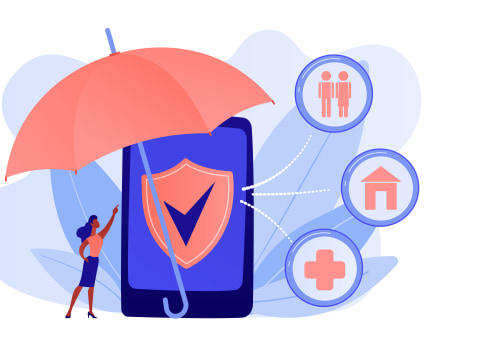
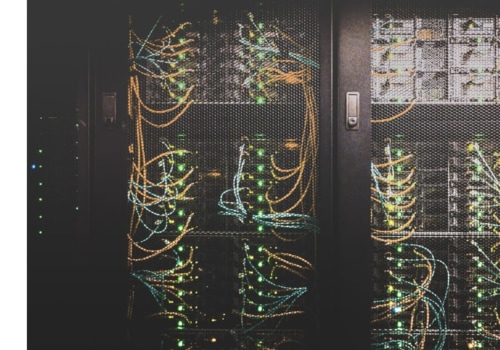


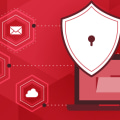
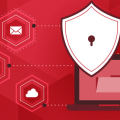
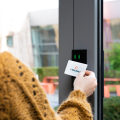
Leave Message